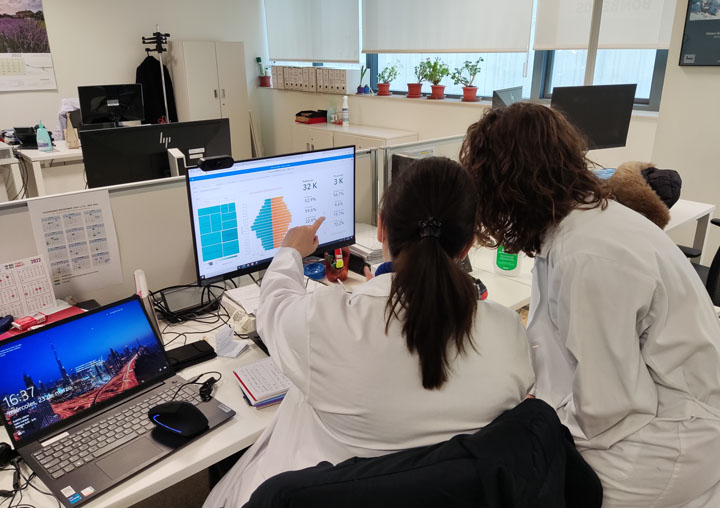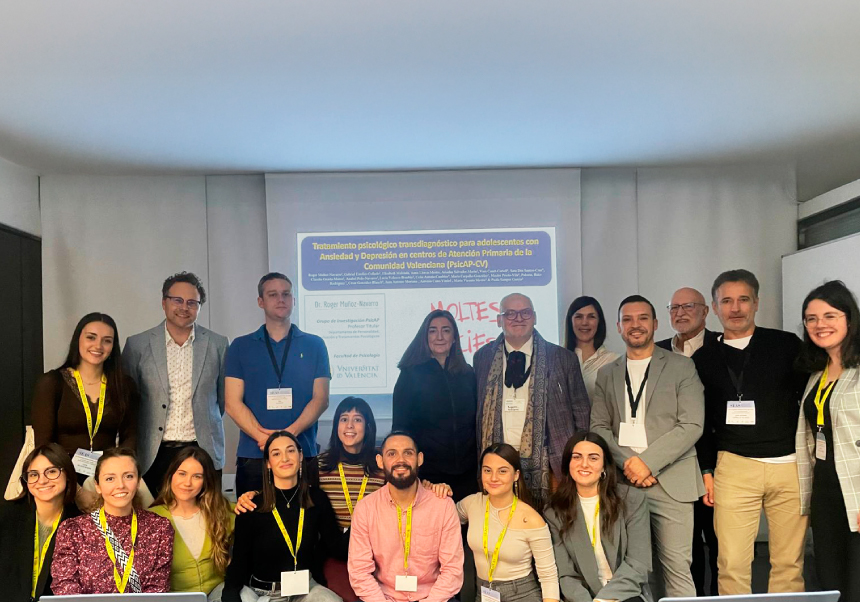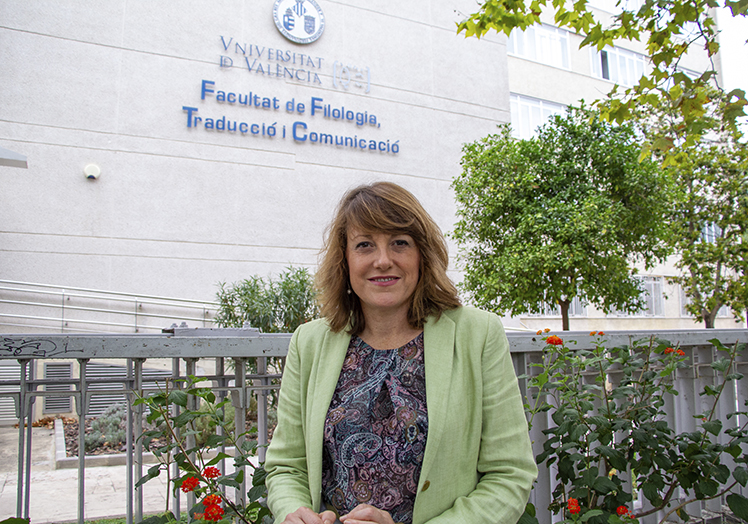The Universitat de València, the UPV and IIS La Fe join forces to improve the digital training of healthcare professionals
- Press Office
- March 29th, 2022

The Universitat de València (UV), the Universitat Politècnica de València (UPV) and the Instituto de Investigación Sanitaria La Fe (IIS La Fe) have developed a European research project to improve the digital skills of healthcare professionals, develop training tools and benefit patients with various pathologies, improving the quality of healthcare.
In 2018, the Universitat de València, through the University Institute of Social Welfare Policy Research (Polibienestar), the Universitat Politècnica de València, through the University Institute of Information and Communication Technologies (ITACA-SABIEN) and the Instituto de Investigación Sanitaria La Fe (IIS La Fe) started a joint research as part of the European project DISH (Digital & Innovation Skills Helix in Health). The main objective of the project, which has had a budget of 996,760 euros, has been to enhance innovation and digital skills of healthcare staff to promote the use of e-health solutions in their daily practice.
The concepts and tools developed in the research have been tested in Spain, Norway, Denmark, Germany, the United Kingdom and Poland, which have participated with their respective research groups in the project. "The testing in different European healthcare contexts demonstrates their flexible and adaptable nature," explains Gertrudis Fornés, researcher at Polibienestar.
During the project, three tools were developed: one for preparing for innovation and adoption of digital skills; a second one for on-the-job training; and a third tool for the assessment and recognition of these skills. These three concepts or tools serve as a guide in the process of designing adapted training: key persons to be involved, the detection of the needs of healthcare staff, the required training, the training objectives and methodology, as well as its evaluation.
In the Valencian Community, these concepts have been used to plan, design and implement a free training course aimed at primary care and speciality healthcare professionals, both medical and nursing staff. This course, certified by the Valencia School of Health Studies (EVES) with five ECTS credits, focuses on the use of an online training platform (Moodle), the prescription of digital resources and the management of a dashboard for Diabetes Mellitus type II. Due to the pandemic irruption, the course had to be redesigned to adapt the contents initially selected for a face-to-face format to a virtual one. Thanks to the efforts of the clinical simulation area of the Hospital Universitari i Politècnic La Fe, 96 professionals have completed the training. According to the participants, the implementation was simple and the training sessions were effective in achieving the planned objectives.
"The pandemic has highlighted the importance and usefulness of digital or e-health solutions and telemedicine," explains Soledad Giménez, a nurse and researcher at the Hospital Universitari i Politècnic La Fe. Its impact, especially in the months in which it put the National Health System to the test, prevented and/or hindered the regular follow-up of patients with type II Diabetes Mellitus, as during those months only the essential visits and/or laboratory tests were carried out.
In addition to this reduction, patients sometimes did not keep their appointments for fear of infection. Faced with this scenario, both primary care doctors and endocrinologists at the hospital expressed the need to implement a dashboard to help them manage patients and to train healthcare professionals in its use.
The design and launch of this course, as well as the students' satisfaction, according to Vicente Traver, director of ITACA-SABIEN, "demonstrates the effectiveness of the concepts and tools of the DISH project, which advocate the participation and collaboration of all interested parts (administrators/managers, technology experts, healthcare professionals, teachers and students) when implementing new or already developed, but not fully used or exploited e-health solutions".
More information:
File in: Investigació a la UV
















